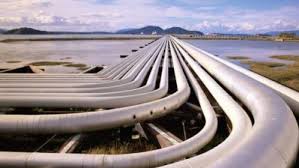
Cernnobbio, Italy — Carbon capture and storage (CCS) technology is key to ensuring the survival and the competitiveness in Italy of industries including steel, cement and chemicals, energy group Eni and gas grid operator Snam said on Friday.
The two groups joined forces last year to set up the first CCS project in Italy. The hub they plan to create in the Adriatic sea will store around 16 million standard tons of carbon dioxide each year, nearly half of the net annual emissions from the country’s most carbon-intensive industries, they said.
The project could also help to decarbonise gas-fuelled power stations and make it possible to produce low-emission hydrogen, contributing to energy transition targets, they added.
CCS technology removes from the atmosphere carbon dioxide (C02) produced by industrial processes or captures it at the point of emission and stores it underground.
The International Energy Agency (IEA) says it can play a vital role in achieving global climate goals.
However, critics say it risks prolonging the use of fossil fuels and question whether it is commercially viable.
A study compiled by the two groups and think-tank Ambrosetti estimates that the Eni-Snam CCS hub will be able to store around 300 million tons of CO2 by 2050, supporting industrial sectors that together generate 62.5 billion euros ($67.8 billion) of value added with about 1.27 million jobs in Italy.
The first CCS hub presents an opportunity to position Italy as a pivotal country for carbon storage in southern Europe, the two groups said, calling on the government to define a competitive framework capable of attracting investments.
“Eni intends to leverage its experience and skills to reconvert… part of the existing infrastructures and production districts into carbon dioxide storage hubs,” Eni Chief Operating Officer for Natural Resources Guido Brusco said in a statement.
This would make it possible to decarbonise the group’s own operations and third-party industrial activities at a competitive cost and in a short time-frame, he added. ($1 = 0.9223 euros)
(Reporting by Francesca Landini Editing by Keith Weir) – Reuters
Follow us on twitter



